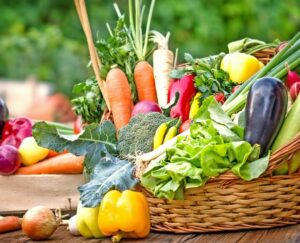Table of Contents
Why Winter Vegetables Should Be a Staple in Your Diet
What Are Winter Vegetables?
Winter vegetables are those that thrive during the colder months, typically from November through March. These include both root vegetables and cruciferous varieties that withstand frost.
- Examples of root vegetables: carrots, beets, turnips.
- Examples of cruciferous vegetables: broccoli, kale, Brussels sprouts.
These vegetables are not only hardy but also packed with nutrients, making them ideal for maintaining a healthy diet during winter.

Why Winter Vegetables Should Be a Staple in Your Diet
Benefits of Eating Winter Vegetables
Nutritional Advantages
Winter vegetables are rich in essential nutrients like vitamins C, A, and K, fiber, and antioxidants. For example:
- Broccoli: Contains glucosinolates and phenolic compounds that combat oxidative stress.
- Beets: High in nitrates, promoting blood flow and healthy blood pressure.
- Carrots: Loaded with beta-carotene for eye health and immunity.
Environmental and Economic Impact
Choosing locally grown winter vegetables helps reduce the carbon footprint, supports local farmers, and sustains farmland. The shorter transport distances also ensure fresher, tastier produce.
Top 12 Winter Vegetables to Include in Your Diet
1. Jerusalem Artichokes
Rich in prebiotics like inulin, they promote gut health and are high in potassium and iron.
2. Kale
Packed with flavonoids and essential vitamins, kale supports heart and bone health.
3. Winter Squash
High in vitamin A and fiber, winter squash helps maintain healthy skin and digestion.
How to Incorporate Winter Vegetables Into Your Meals
- Roast vegetables with olive oil, salt, and pepper for a simple side dish.
- Add chopped carrots and kale to soups or stews for added nutrients.
- Use cauliflower as a low-carb substitute for mashed potatoes.
- Make kale chips or add fresh greens to smoothies for a nutrient boost.
For inspiration, try these recipes:
How to Grow Winter Vegetables
Winter gardening requires preparation and the right tools. Follow these tips:
- Use cold frames, mini hoop tunnels, or greenhouses to protect crops.
- Plant cold-tolerant vegetables like kale, carrots, and garlic in late summer.
- Insulate soil with mulch to protect root vegetables like beets and parsnips.
Check out this guide to winter gardening for detailed advice.
Risks and Side Effects
While winter vegetables are generally beneficial, some individuals may need to limit their intake:
- Cruciferous vegetables: May cause bloating for those sensitive to FODMAPs.
- Root vegetables: Higher sugar content may affect blood glucose levels for diabetics.
Consult with a nutritionist if you have dietary restrictions.